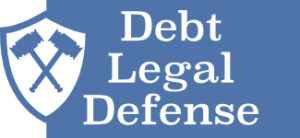If you took out student loans for college, the question of how you’re going to repay those loans might be on your mind. While student loans can give you the opportunity to get an excellent college education, keeping up with your loan payments on top of rent, food, and other living expenses can get stressful, especially as you’re getting started in your career.
According to the US Department of Education, the average amount of student loan debt per borrower is $37,000. If you’re one of the many borrowers who worry about how you will pay off your student loan debt, there are a few strategies that can make tackling your student loan debt easier. If you are struggling to make payments or have defaulted on your student loan debt, contact the student loan debt lawyers at Debt Legal Defense today.
The Right Way To Make Extra Payments
If you are still in school or in a grace period and are not required to make payments, consider making what payments you can or paying at least the interest accrued each month, if you are able. Making payments toward your student loan before you are required to can decrease the amount of interest added to your balance when you enter the repayment period.
If you want to make extra payments once you’re in the repayment period, you should make sure your student loan servicer will apply any overpayments to your current balance instead of applying it to your next month’s payment. Otherwise, you’ll just be moving your next due date forward instead of paying towards your balance.
Loan Forgiveness and Reimbursement Programs
If you work in public service, you may qualify for student loan forgiveness. The Public Service Loan Forgiveness program allows public service employees to make a set number of payments while working in the public service sector, then the remainder of what they owe is forgiven. Some companies offer student loan reimbursement as an employee benefit, so ask your employer. Teachers and military members may also qualify for certain repayment programs or loan forgiveness.
Consider Refinancing Your Student Loan
Refinancing your student loan may allow you to combine multiple federal loans into one private loan with a lower interest rate. To qualify to renaissance your federal student loans, you’ll need a credit score in the high 600s and a solid income-to-debt ratio. However, if you refinance your student loans, you won’t qualify for programs like Public Service Student Forgiveness or an income-driven repayment plan for federal loans.
Need Help With Student Loan Debt? Contact Us
At legal debt defense, we understand the toll student loan debt can take on your mental health. We are highly experienced in debt defense and debt defense lawsuits and can help you avoid defaulting on your federal student loans. If you are struggling to keep up with your payments, contact our federal student loan lawyers. We can negotiate with your servicer on your behalf, and we offer affordable payments as well as free consultations for new clients.






